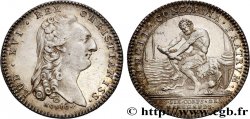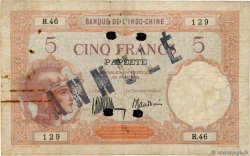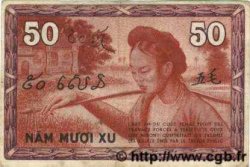fjt_072834 - CORPORATIONS Jeton Ar 28, marchandes-lingères n.d.
Not available.
Item sold on our e-shop
Price : 85.00 €
Item sold on our e-shop
Price : 85.00 €
Type : Jeton Ar 28, marchandes-lingères
Date: n.d.
Metal : silver
Diameter : 28 mm
Orientation dies : 12 h.
Weight : 7,79 g.
Edge : cannelée
Rarity : R1
Coments on the condition:
De petites marques de manipulation avec une usure régulière. Très bel exemplaire avec une légère patine
Catalogue references :
Obverse
Obverse legend : LUDOV. XVI. REX - CHRISTIANISS..
Obverse description : Buste à droite de Louis XVI [n° 375] ; au-dessous signature DU VIV..
Obverse translation : (Louis XVI roi très chrétien).
Reverse
Reverse legend : * COMMTÉ DES MDES LINGERES DE ROUEN, DÉBUT DE LÉGENDE À SIX HEURES.
Reverse description : Deux mains jointes, sortant des nuages.
Commentary
Le métier de marchande-lingère est un métier strictement féminin. Les jurées sont choisies parmi les maîtresses lingères et leur mari ne peut en aucun cas occuper la fonction. Les statuts définissent les objets de vente : toiles de lin et chanvre, baptiste, hollande, canevas gros et fin, treillis blanc et jaune, fils blancs et jaunes, qui constituent les matières premières des autres corporations d'étoffes. La confrérie est dédiée à sainte Véronique.
The profession of linen merchant is strictly a female profession. The jurors are chosen from among the master linen maids and their husbands may not under any circumstances hold the position. The statutes define the items of sale: linen and hemp, baptiste, Holland, coarse and fine canvas, white and yellow lattice, white and yellow threads, which constitute the raw materials of the other fabric guilds. The brotherhood is dedicated to Saint Veronica.
The profession of linen merchant is strictly a female profession. The jurors are chosen from among the master linen maids and their husbands may not under any circumstances hold the position. The statutes define the items of sale: linen and hemp, baptiste, Holland, coarse and fine canvas, white and yellow lattice, white and yellow threads, which constitute the raw materials of the other fabric guilds. The brotherhood is dedicated to Saint Veronica.








 Report a mistake
Report a mistake Print the page
Print the page Share my selection
Share my selection Ask a question
Ask a question Consign / sell
Consign / sell
 Full data
Full data















